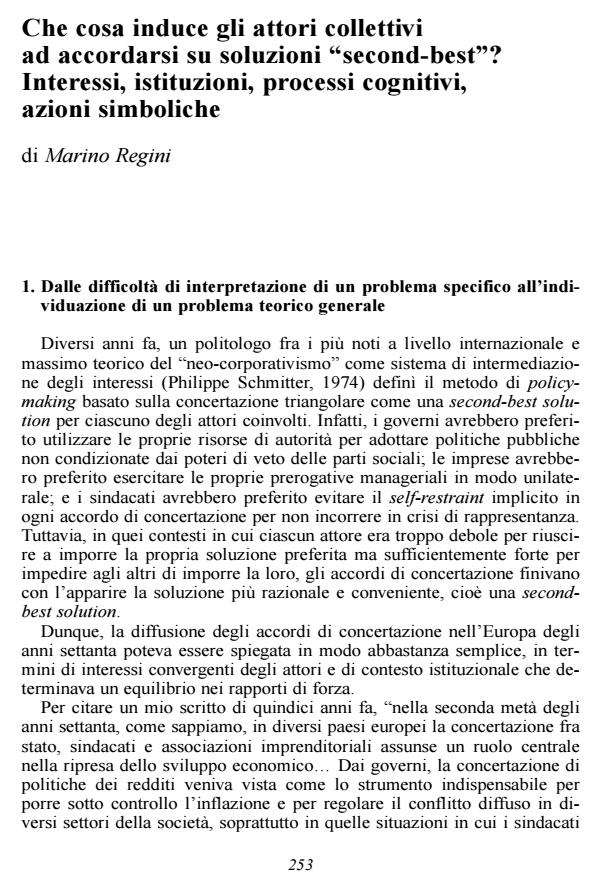Che cosa induce gli attori collettivi ad accordarsi su soluzioni second best? Interessi, Istituzioni, processi cognitivi, azioni simboliche
Journal title SOCIOLOGIA DEL LAVORO
Author/s Marino Regini
Publishing Year 2006 Issue 2005/100
Language Italian Pages 9 P. File size 25 KB
DOI
DOI is like a bar code for intellectual property: to have more infomation
click here
Below, you can see the article first page
If you want to buy this article in PDF format, you can do it, following the instructions to buy download credits

FrancoAngeli is member of Publishers International Linking Association, Inc (PILA), a not-for-profit association which run the CrossRef service enabling links to and from online scholarly content.
Several years ago, Philippe Schmitter characterized tripartite concertation as a second-best solution for all actors concerned. But collective actors with basically the same features do not always succeed in reaching shared solutions that a) do not correspond to the preference order of any of the actors involved and b) to be effective, must be accepted by actors that do not directly participate in the agreement. How can we account for this varying degree of success? This article claims that we should try and combine three different types of independent variables. The first type is widespread in the political economy literature and refers to such variables as actors’ interests and behaviour which is path-dependent on the institutional context, changing power relations among these actors, conditions which do or do not allow for cooperative games. The second type refers to actors’ cognitive processes, such as their perceptions of power relations, ability to formulate alternative scenarios and their implications, willingness to learn from previous experience. Finally, symbolic action aimed at maintaining collective identities may be important. Leaders that strike a deal must be able to rely on symbolic devices capable to convince their rank and file. Also, all actors must be able to argue that second-best solutions are necessary to achieve public goods that may even be socially constructed as national emergencies.
Marino Regini, Che cosa induce gli attori collettivi ad accordarsi su soluzioni second best? Interessi, Istituzioni, processi cognitivi, azioni simboliche in "SOCIOLOGIA DEL LAVORO " 100/2005, pp , DOI: